Android opencv

install cmake
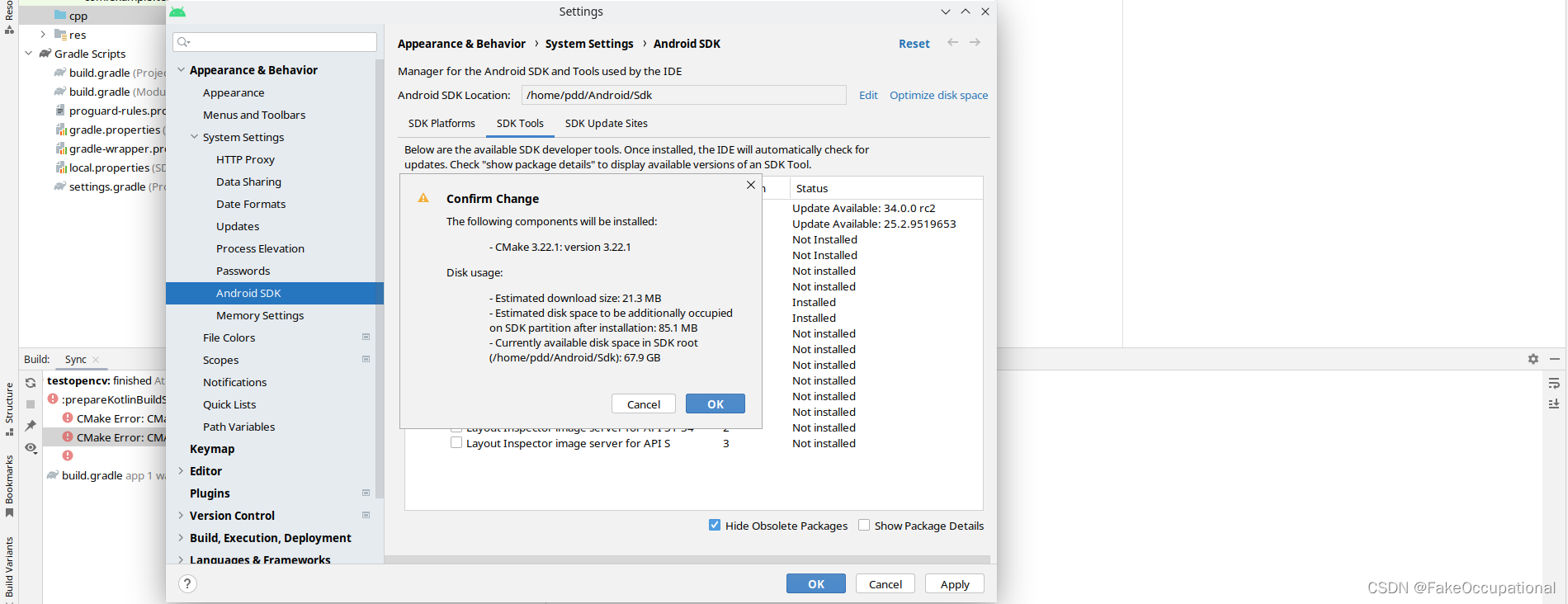
cpp folder,新建c++项目
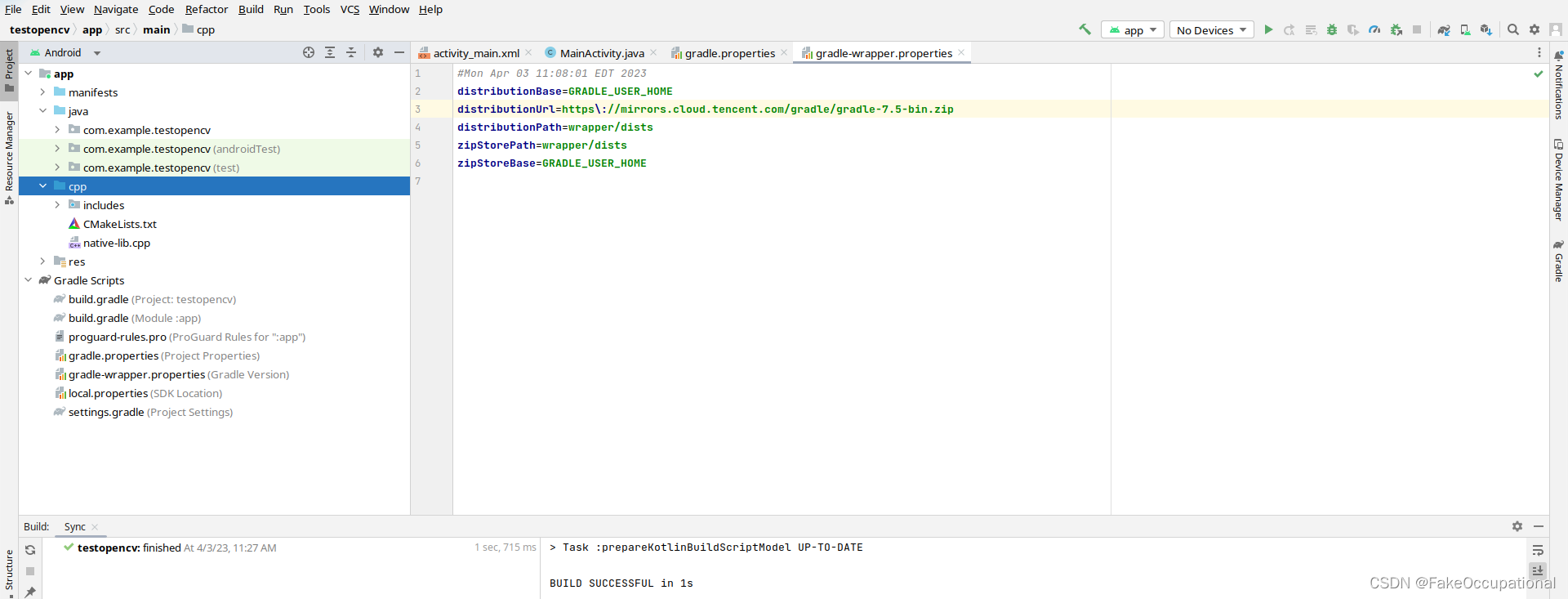
获取 OpenCV4Android SDK O4A_SDK
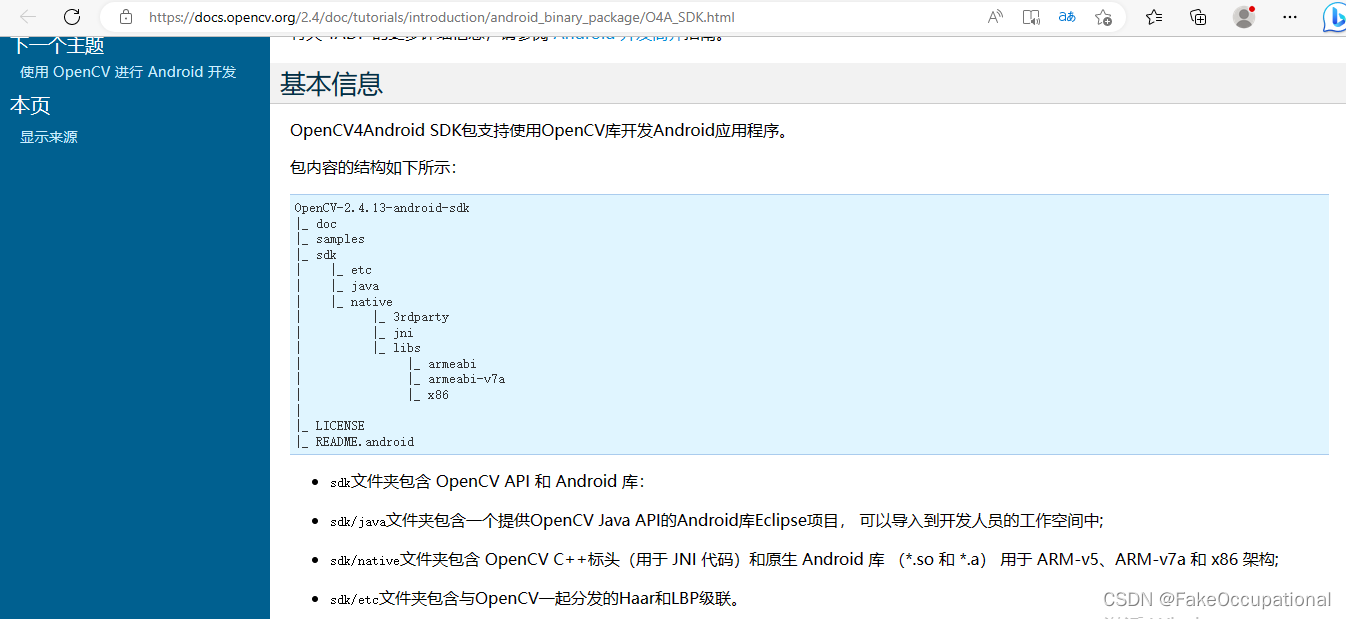
- 下载,并解压
~/Downloads/OpenCV-android-sdk$ tree -d -L 2
.
├── apk
├── samples
│ ├── 15-puzzle
│ ├── camera-calibration
│ ├── color-blob-detection
│ ├── face-detection
│ ├── image-manipulations
│ ├── tutorial-1-camerapreview
│ ├── tutorial-2-mixedprocessing
│ └── tutorial-3-cameracontrol
└── sdk├── etc├── java└── native设置cmakelist等
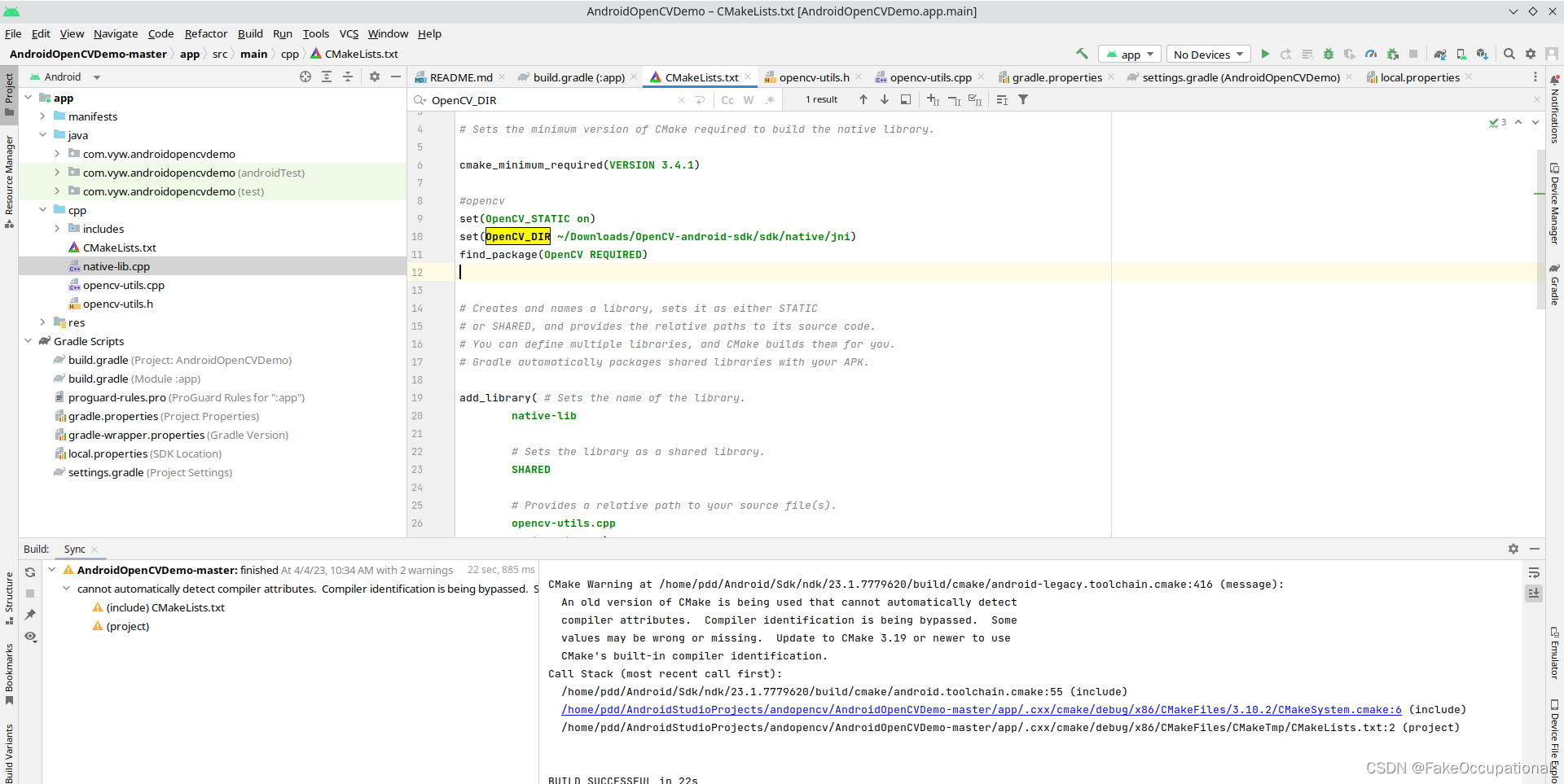
这里在windows环境运行
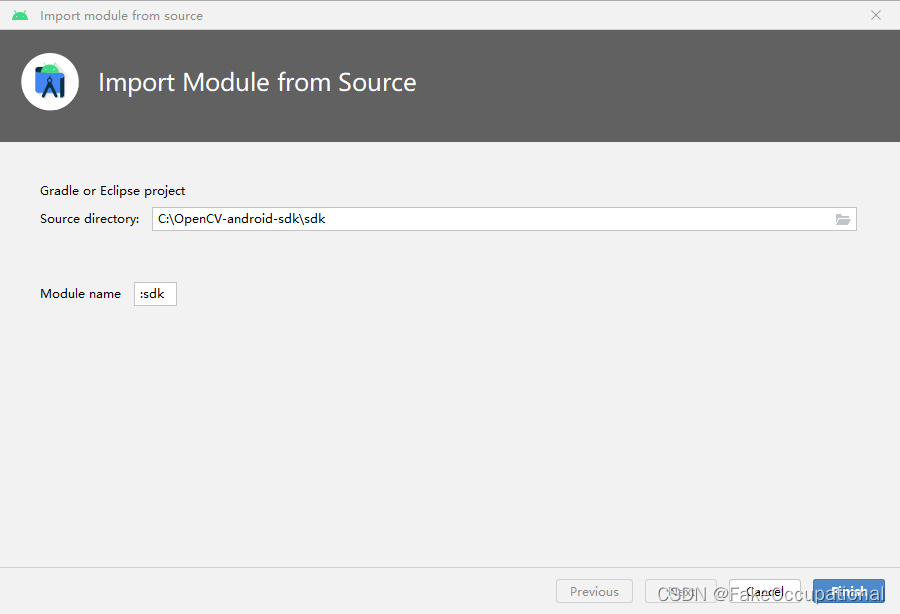
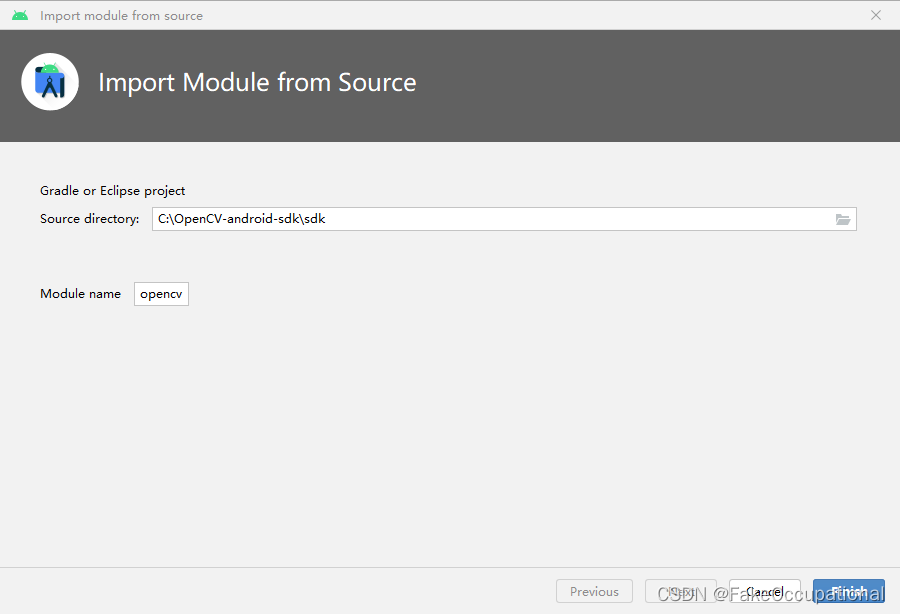
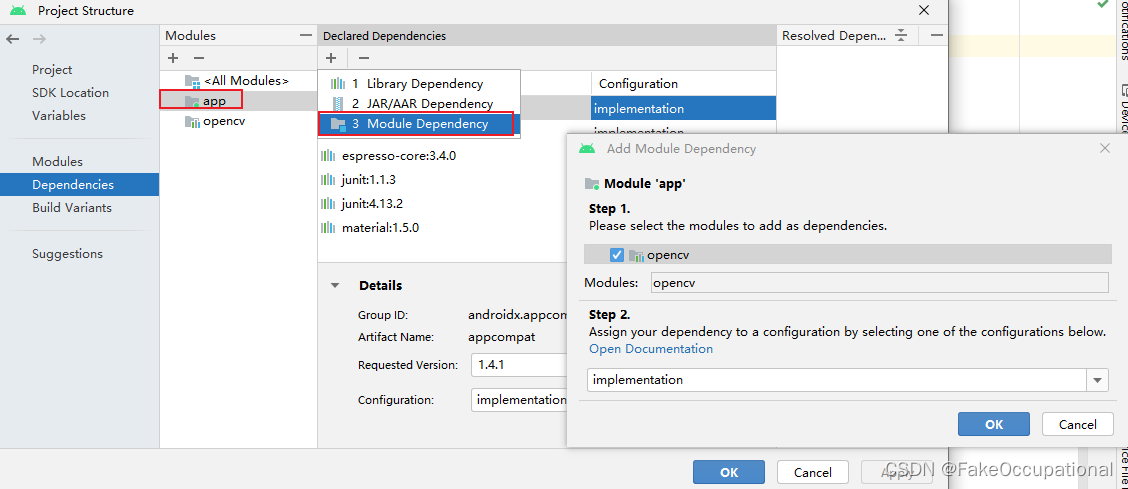
-
尝试编译运行一下
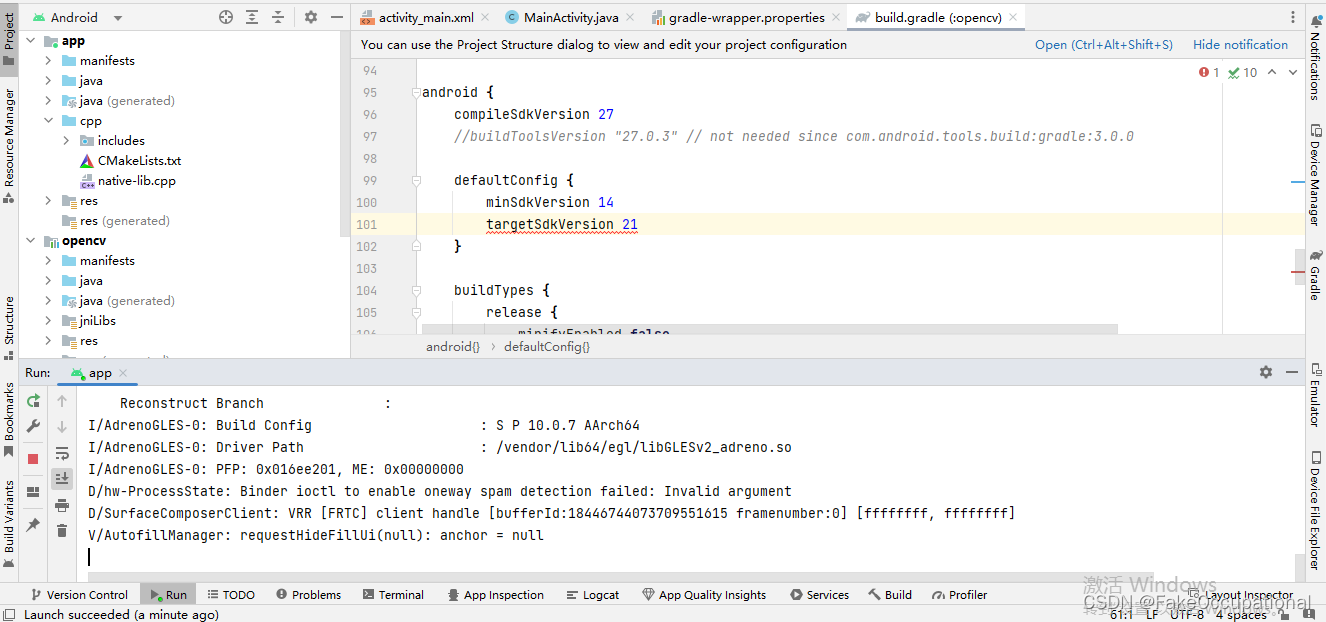
-
参考 在Android Studio工程中配置OpenCV库的并实现OpenCV实例Color Detect
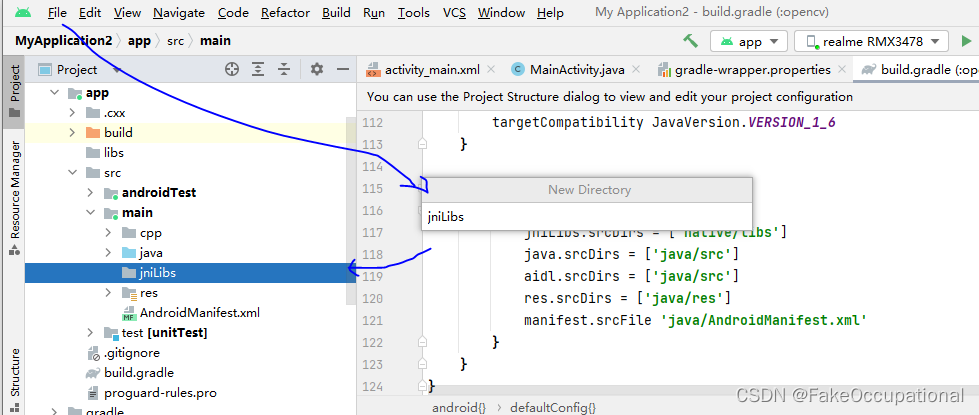
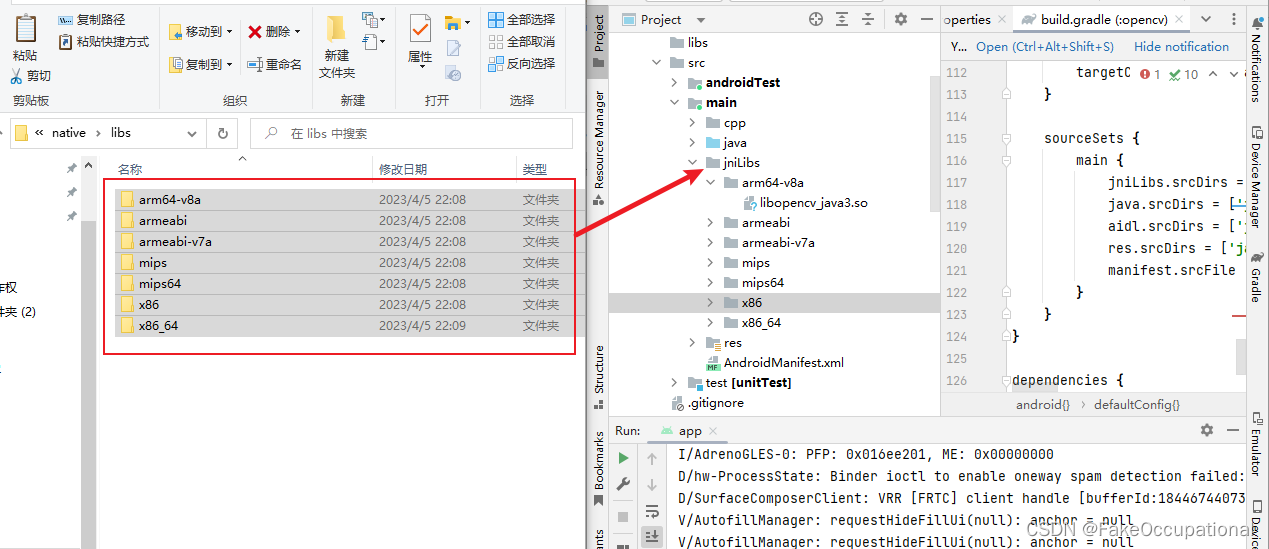

# For more information about using CMake with Android Studio, read the
# documentation: https://d.android.com/studio/projects/add-native-code.html# Sets the minimum version of CMake required to build the native library.cmake_minimum_required(VERSION 3.22.1)# Declares and names the project.project("myapplication2")set(pathToOpenCV C:\\\\OpenCV-android-sdk\\\\sdk\\\\native)
include_directories(${pathToOpenCV}/jni/include)# Creates and names a library, sets it as either STATIC
# or SHARED, and provides the relative paths to its source code.
# You can define multiple libraries, and CMake builds them for you.
# Gradle automatically packages shared libraries with your APK.
add_library( lib_opencv SHARED IMPORTED )
set_target_properties(lib_opencv PROPERTIES IMPORTED_LOCATION C:/User/admin/AndroidStudioProjects/MyApplication2/app/src/main/jniLibs/${ANDROID_ABI}/libopencv_java3.so)add_library( # Sets the name of the library.myapplication2# Sets the library as a shared library.SHARED# Provides a relative path to your source file(s).native-lib.cpp)# Searches for a specified prebuilt library and stores the path as a
# variable. Because CMake includes system libraries in the search path by
# default, you only need to specify the name of the public NDK library
# you want to add. CMake verifies that the library exists before
# completing its build.find_library( # Sets the name of the path variable.log-lib# Specifies the name of the NDK library that# you want CMake to locate.log)# Specifies libraries CMake should link to your target library. You
# can link multiple libraries, such as libraries you define in this
# build script, prebuilt third-party libraries, or system libraries.target_link_libraries( # Specifies the target library.myapplication2# Links the target library to the log library# included in the NDK.${log-lib}lib_opencv)
# https://blog.csdn.net/weixin_55626853/article/details/123941565
# cmake最低版本号
cmake_minimum_required(VERSION 3.4.1)# 导入opencv头文件
include_directories(${OPENCV_HEADER_DIR})# add_library:把一个library添加到工程
add_library(native-libSHAREDnative-lib.cpp)# 添加一个已构建的库,使用IMPORTED
add_library(opencv_java4 SHARED IMPORTED)
set_target_properties(opencv_java4PROPERTIES IMPORTED_LOCATION"${OPENCV_LIBS_DIR}/${ANDROID_ABI}/libopencv_java4.so")# 首个参数是target,后面的参数是item;target必须先用add_library()创建过;
target_link_libraries(native-libopencv_java4jnigraphicslog )# For more information about using CMake with Android Studio, read the
# documentation: https://d.android.com/studio/projects/add-native-code.html# Sets the minimum version of CMake required to build the native library.cmake_minimum_required(VERSION 3.22.1)# Declares and names the project.project("myapplication3")set(pathToOpenCV C:\\\\OpenCV-android-sdk\\\\sdk\\\\native)
include_directories(${pathToOpenCV}/jni/include)
# Creates and names a library, sets it as either STATIC
# or SHARED, and provides the relative paths to its source code.
# You can define multiple libraries, and CMake builds them for you.
# Gradle automatically packages shared libraries with your APK.
add_library( lib_opencv SHARED IMPORTED )
set_target_properties(lib_opencv PROPERTIES IMPORTED_LOCATION C:/User/admin/AndroidStudioProjects/MyApplication3/app/src/main/jniLibs/${ANDROID_ABI}/libopencv_java3.so)add_library( # Sets the name of the library.myapplication3# Sets the library as a shared library.SHARED# Provides a relative path to your source file(s).native-lib.cpp)# Searches for a specified prebuilt library and stores the path as a
# variable. Because CMake includes system libraries in the search path by
# default, you only need to specify the name of the public NDK library
# you want to add. CMake verifies that the library exists before
# completing its build.find_library( # Sets the name of the path variable.log-lib# Specifies the name of the NDK library that# you want CMake to locate.log)# Specifies libraries CMake should link to your target library. You
# can link multiple libraries, such as libraries you define in this
# build script, prebuilt third-party libraries, or system libraries.target_link_libraries( # Specifies the target library.myapplication3# Links the target library to the log library# included in the NDK.${log-lib}${lib_opencv}) # https://blog.csdn.net/gxhea/article/details/115616602
-
https://sriraghublog.wordpress.com/2017/03/11/opencv-in-android-an-introduction-part-1/
-
简单的尝试: https://github.com/r4ghu/OpenCVAndroid-AnIntroduction

errors
error - CMake ‘3.22.1’ found in SDK did not match requested version ‘3.10.2’.

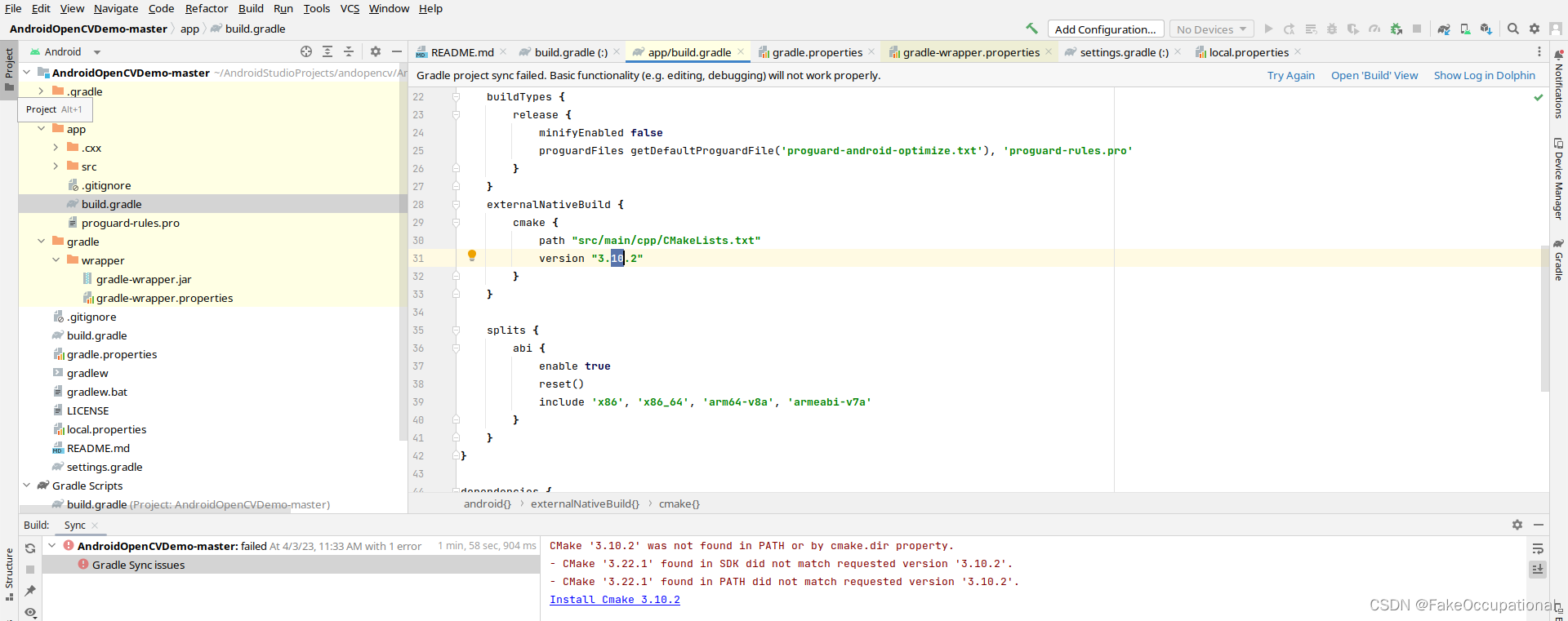
// https://www.thecodingnotebook.com/2020/04/image-processing-with-opencv-in-android.html
externalNativeBuild {cmake {path "src/main/cpp/CMakeLists.txt"version "3.10.2" # <<-- REMOVE THIS LINE}
}
nullpointer
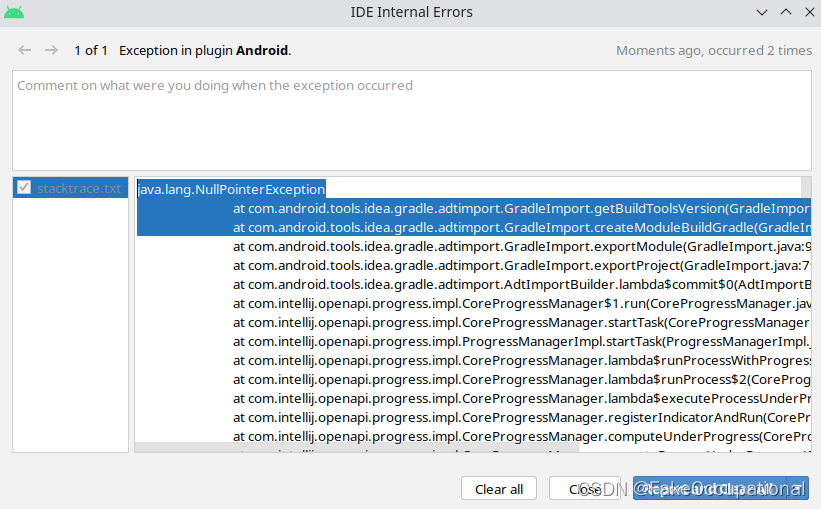
Hope that helps! The steps below helped me get out of this situation:
File -> Invalidate Caches / Restart -> Invalidate and Restart
Build -> Clean Project
安卓插件中出现异常
CG
- Importing opencv to android studio
- 纯java调用的例子


